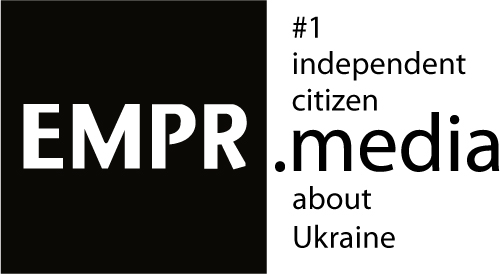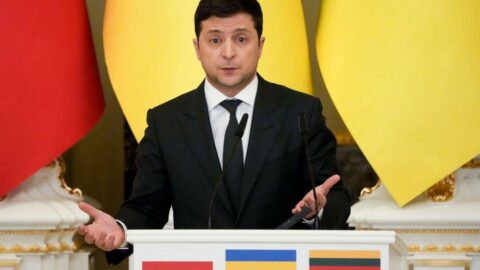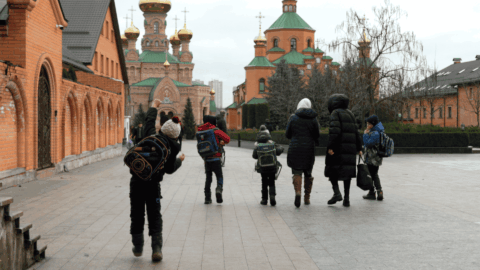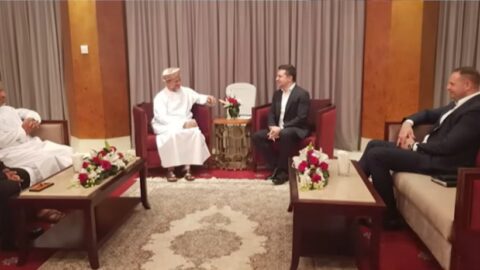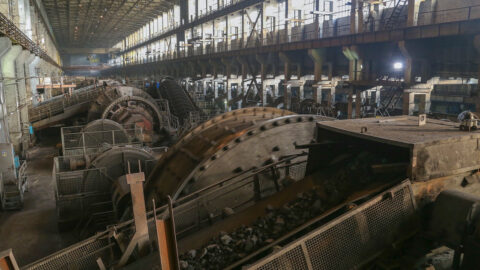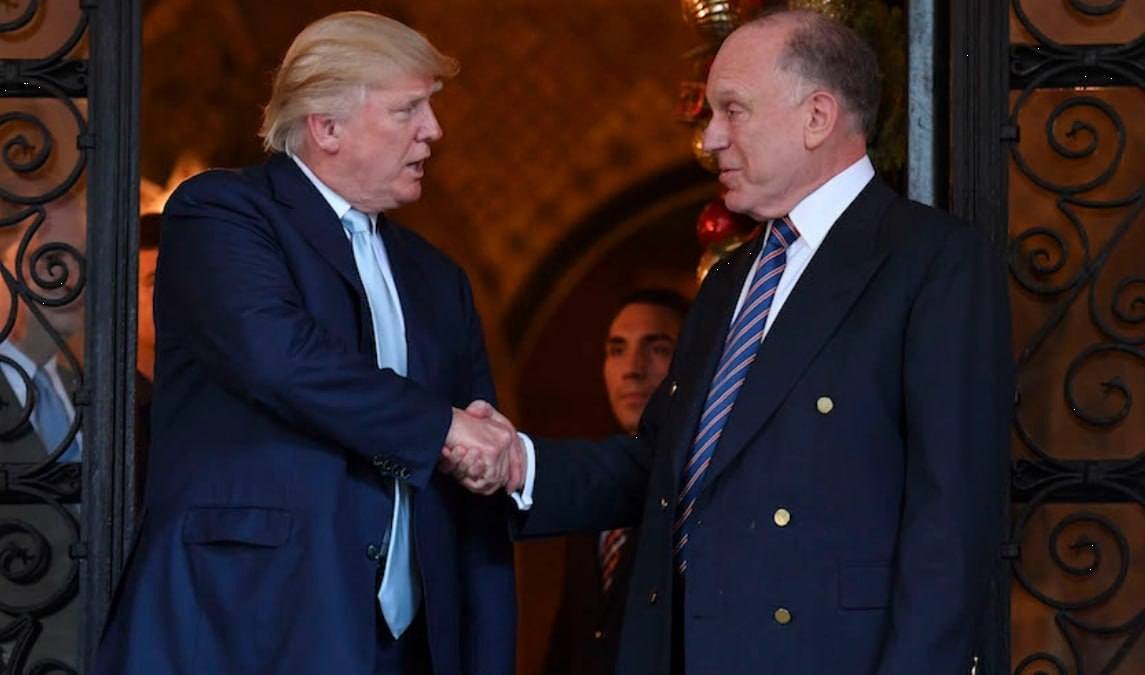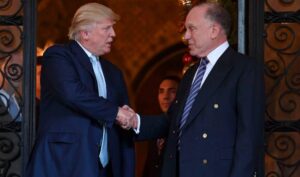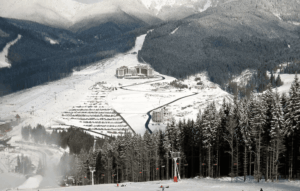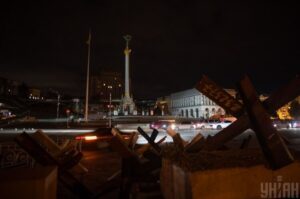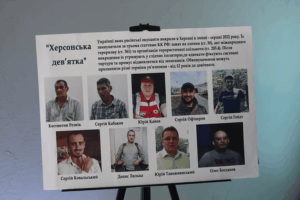Herman Halushchenko orchestrated a massive corruption scheme through Energoatom, manipulating both Parliament and the government. The “Shlagbaum” moratorium scheme allowed the company to avoid enforcement actions, forcing contractors to pay 10–15% kickbacks or face blocked payments. Despite legal violations, the scheme persisted under the influence of the Ministry of Energy and the President’s Office.
Key figures included Mindich, Kotin, Kharmut, and Pushkar. Energoatom’s inclusion in the moratorium was illegal and politically pushed, yet enforcement bodies initially failed to act. The scheme siphoned funds from state tenders, with evidence documented in Mindich’s tapes and NABU investigation materials.
Ukrainian MP Yaroslav Zhelezniak investigates.
And now I will tell you the story of how Herman Halushchenko turned the Parliament into accomplices — MPs and the Government — in his project for earning billions through Energoatom.
The “Shlagbaum” or the moratorium scheme on enforcement actions was known. Moreover, we investigated it in the Temporary Investigative Commission, and as a result it was abolished. My colleague Max Khlapuk led this case for more than two years.
So, on May 22, 2024, the Parliament (I also did not vote for this nonsense) adopted with the minimum 227 votes the law №8316 on a moratorium on the bankruptcy of state critical infrastructure facilities.
The norms do not apply to Energoatom (although Halushchenko had already tried multiple times to insert energy companies into the law, he was rejected).
Therefore Halushchenko, together with his group, goes for a direct violation of the law.
July 27, 2024
A National Guard military unit signs a contract with LLC “UKROP”.
July 30, 2024
NAEC Energoatom signs an agreement with LLC “UKROP” to participate as a co-executor in the state contract.
July 31, 2024
Energoatom sends a copy of this agreement to the Ministry of Strategic Industries (separately from the main application).
August 1, 2024
Energoatom submits an application to the Ministry of Strategic Industries to be included in the list of enterprises whose enforcement actions are suspended.
Attached to the application are only letters from LLC “UKROP” and the National Guard stating no objections, but without the required subcontract agreement.
August 2, 2024
The Ministry of Strategic Industries issues Order No. 95 — includes Energoatom in the list of debtors for whom enforcement proceedings are suspended during martial law.
This means that the company can temporarily avoid paying its debts to creditors.
August 29, 2024
The Temporary Investigative Commission (TIC) receives copies of the documents from the Ministry and starts verification.
December 9, 2024
The TIC officially appeals to the Ministry demanding that Energoatom be excluded from the list — due to the absence of a proper subcontract agreement.
December 25, 2024
The Ministry responds that it sees no grounds to exclude Energoatom from the list of debtors. Signed by Herman Smetanin.
January-February 2025
After the TIC published its materials, the lawyer of Energoatom’s contractor files a complaint.
In February 2025, the contractor files a lawsuit against the Ministry in the Kyiv District Administrative Court.
June 26, 2025
Minister Smetanin issues Order No. 84 — Energoatom is excluded from the list of debtors whose enforcement proceedings are suspended.
All this time the scheme was being pushed by then–Minister of Energy Herman Halushchenko.
▪️Together with Petro Kotin (former head of Energoatom, from Mindich)
▪️Together with Jakob Kharmut (chief financial officer of Energoatom, from Mindich)
▪️Together with Serhii Pushkar (now a member of the National Energy and Utilities Regulatory Commission, then the main person responsible for enforcement proceedings, on Mindich’s payroll)
Everyone in the President’s Office knew it was a scheme, and that’s why… Herman Halushchenko was also made Minister of Justice. Meaning he became the main person in charge of… enforcement proceedings in the entire country )))))
The scheme is still working at other state-owned enterprises, by the way. Mostly through Mindich as well.
I recommend watching the video.
” Friends, hello! Good morning. As you understand, today we will continue talking about the biggest corruption scheme ever uncovered in Ukraine. We will be talking about Energoatom, Mindich, Halushchenko, and analyzing the recordings… well, let’s call them “Mindich’s tapes.” Since the naming has already caught on, I won’t change it. Today we will talk about a specific episode, where you will hear everything directly, firsthand. And why? Because we investigated it and later shared it, including with our colleagues at NABU.
How exactly the role of Halushchenko, the government, and the pressure from the President’s Office helped all these “Karlsens” and, essentially, the assistants and partners of Derkach earn hundreds of millions of dollars from our energy sector. And we will talk about the Shlagbaum scheme. We might have heard about it in the tapes, but we probably didn’t fully understand it. But for the past two years we have understood this scheme very well, we have been studying it, and, as I said, we are the applicants in this case.
So today we are analyzing a specific episode — how the biggest corruption scheme in the country was basically built. Specifically, again, using Energoatom as an example, although this is just one small case — there are actually many more. And there are more state-owned companies that have appeared in this story.
So, with you is Yaroslav Zhelezniak, this is the “Zaliznyy Nardep” channel, and we begin.
Roket effectively took control of procurement in Energoatom and the execution of already concluded contracts through company officials under his influence: the executive director for physical protection and security of Energoatom — also known as “Tenor” — and the company’s director of finance and budgeting. It was Roket who organized the scheme for obtaining illicit benefits from the state energy company’s counterparties, amounting to 10–15% of the contract value.
In effect, a system was created in which a strategic enterprise with revenues of over 200 billion UAH was not run by the top managers, the supervisory board, or the state as the owner, but by an outside individual who, having no formal authority, assumed the role of a shadow manager — a so-called “overseer.”
The practice established in Energoatom for concluding contracts with counterparties generally involved post-payment for delivered goods and services — up to six months. At the same time, in many cases a counterparty could supply goods or services for the company’s needs only after undergoing an evaluation procedure and obtaining an approved supplier status.
Meanwhile, by order of the Ministry of Strategic Industries, Energoatom was included in the list of enterprises from which, during martial law, debt cannot be forcibly collected under court decisions. Taking advantage of these very broad discretionary powers, company employees introduced the so-called Shlagbaum scheme: you either pay a kickback, or you face blocked payments for the work already completed and the loss of your approved supplier status with Energoatom.
During conversations between Roket and Tenor the mechanism of pressure on counterparties is discussed, which created the prerequisites for obtaining illicit benefits from them:
Roket: — … (Tenor) came to me yesterday, he says *** (the head of one of the companies — a counterparty of Energoatom) isn’t being frank with us. I said: probably go to Lyuda (Df) and sort it out, let her explain to us what this is, well we’ll just strip off the certification and that’s it. And we’ll remove the technical specifications for those rings.
Df: — Well, then I’ll call him tomorrow and tell him: let him lay out all his relations with Andrey?
Roket: — Just tell him, look. It will be … the whole lineup of companies. You’ll just end up in the same place as *** (referring to the person who controlled the group of Energoatom suppliers) and all the others — on the blacklist. You’ll be going around and saying: “We’ll be back soon.” That “soon” has already lasted 5 years, but in the five years before you return we’ll take away all your technical specifications, cancel all certificates — you’ll just be wiped out and that’s it. All your employees will be taken into the army.
So let’s briefly figure out what the scheme called Shlagbaum is.
Just a small disclaimer, dear friends: I simply have to do this. This story was investigated in our team by Max Khlapuk — you probably don’t know him. He is my colleague, a member of parliament, my friend, standing here on the right next to Vitaliy Shabunin… you may have seen him when watching our videos, either from the Kudrytskyi court case or from the Vitaliy Shabunin court case. Max is a very professional person; he is also a member of the relevant energy committee and was responsible for this investigation. Max was writing about this material to me, including while he was sick.
So I’m recording this for you now late in the evening, completely exhausted, because I wanted to make sure this work doesn’t go to waste.
So, what is the Shlagbaum scheme?
This is the story where Energoatom tells any contractor: “You know, we’re not going to pay. If you want — go to court, but in court you won’t achieve anything either, because we have a moratorium on enforcement proceedings.” And the person in Energoatom who handled this was receiving a “twenty percent,” and later was appointed as a member of Energoatom.
But here is a very important point: how did this happen? Because the Verkhovna Rada disrupted this scheme for Energoatom several times. And accordingly, this will also involve violations of the law.
So I will try to explain it to you briefly.
This story appeared back in July 2024. At that time, one of the National Guard military units signed a contract with the company LLC “Ukrop” — very telling. In this case, Energoatom immediately, in August, submitted a statement to the Ministry of Strategic Industries, attaching a letter that LLC “Ukrop” is, accordingly, a co-executor with NJSC Energoatom of this state contract, and as a strategic state enterprise performing a military order, it should accordingly be included in this moratorium on enforcement proceedings.
I’ll tell you right away that this story with the moratorium — why it was so cleverly routed through a military contract for a certain military unit — is because the Ukrainian parliament made a decision: for those performing military contracts, they can indeed be protected from the moratorium. A controversial decision — I did not vote for it and still think it was the right stance — but in this case, the Ministry of Strategic Industries accordingly considered this issue.
And so, accordingly, on the first day, they submit it, and on August 2, 2024, the Ministry of Strategic Industries issues Order No. 95, which includes NJSC Energoatom in the list of enterprises that are debtors in enforcement proceedings, and for which enforcement proceedings are suspended during the period of martial law.
I will show you these documents, and you’ll see — here is confirmation that we were following this entire story. Guys, sorry, here is exactly the moment Energoatom is included in this list. The order quickly comes into effect, and in this way all enforcement proceedings against Energoatom are paused. In short — the Shlagbaum is activated.
At that time, we immediately wrote about this and reported it to NABU. As you can see, not without reason — we sent inquiries. And there was no response, because Energoatom always explained that there is the company LLC “Ukrop,” it is doing something for the military unit, we are helping them a little, and therefore it is included in this moratorium.
I want to note one point here: I spoke directly with the Ministry of Strategic Industries at the time, and they explained that the Minister of Energy, Herman Halushchenko, personally contacted them and demanded that this order be issued. And accordingly, in my opinion, in violation of the law, the Ministry of Energy required Energoatom to be added to the Shlagbaum list.
So the scheme, once again: it’s very simple and quite clear. At that time, at the level of the Temporary Investigative Commission, you can see my letters — we sent many inquiries to the Ministry of Strategic Industries, writing that this story was mistaken, that they had no right to do this. But in any case, again: Energoatom was involved here, because, as you understand, the scheme was quite interesting.
Here’s another point about the inclusion in the list: Energoatom’s statement was sent on August 1, and immediately, just one day before being added to the list, it included a letter from the client and the contractor under the state defense contract, declaring that they had no objections to Energoatom being involved as a co-executor under their contract. And yet, according to the law, involving a co-executor in fulfilling state contracts is only possible based on a subcontract agreement concluded with such a co-executor, which obviously did not exist.
So, besides the political and logical aspects, the law had already been violated, which we immediately reported to our colleagues in the anti-corruption law enforcement agencies.
And accordingly, as you understand, the Minister of Strategic Industries changed: first it was Kamyshyn, then Smetanin. But in any case, all our sources say that both the President’s Office and, in particular, Herman Halushchenko contacted them, demanding that this order be issued.
The scandal developed for a long time. In December 2024, we already appealed to the government demanding that NJSC Energoatom be excluded. And later, after some time, the Ministry of Strategic Industries told us that they had no grounds to exclude Energoatom.
And, in short, the whole scheme was working: as you can see, it helped siphon money from any state tender. Once again: this happened quite simply — people would come to a tender, and they were told, “Either a 15% kickback, or we throw you out of this tender; you will never get paid.”
A separate story is that lawyers approached the Temporary Investigative Commission. Specifically, the lawyer of one of the contractors, to whom Energoatom had issued an invoice — they sent it, did not pay — and they were the claimant in enforcement proceedings against NJSC Energoatom over debts. This contractor tried independently to appeal the Ministry of Strategic Industries’ decision in court.
n February 2025, he filed a lawsuit with the Kyiv District Administrative Court. And only at the end of August 2025 did the Kyiv District Court reject the plaintiff’s claim to cancel the order.
Although it should also be noted that, in a rather strange way — and something tells me this is somewhat related to the political aspect — at the end of June 2025, the same Ministry of Strategic Industries, which had previously claimed that they supposedly had no grounds to exclude Energoatom from the list… suddenly excludes it. They remove this Shlagbaum.
What does this story tell us? It shows how a state-owned enterprise, not exploiting a loophole in the law but actually breaking the law — according to all our sources and documents — and actively pushed by Herman Halushchenko, as confirmed by the documents, implemented the Shlagbaum. They used it to extract 10–15% from contractors, turned it into money, which you saw in the tapes and in NABU materials, and stole funds there.
This scheme did not operate only in Energoatom. I am convinced that you will see more of this soon.
Why am I making this video for you? First, to tell a bit of the story. Second, I’m glad that we contributed a lot so that it is now included in NABU’s investigation materials. And third, to highlight the role of Mr. Halushchenko as the person who immediately constructed this entire corruption scheme, and who, unfortunately, still not only remains in office but is now Minister of Justice, responsible for enforcement proceedings.
You see the irony of fate — now, if he spread his “diamond,” he would “shine,” as they said on the tapes, with new colors.
So, with you was Yaroslav Zhelezniak, this is the “Zaliznyy Nardep” channel. We will continue to tell the story of the biggest anti-corruption scheme uncovered in Ukraine, involving the president’s friend and co-owner of “Kvartal 95,” four government officials, and a huge number of other people, whom we will also tell you about.
Goodbye.”
Tags: Anti-Corruption Investigation Energoatom scandal Energy corruption Ukraine Government Accountability Kickback scheme President’s Office negligence State enterprise graft Wartime corruption